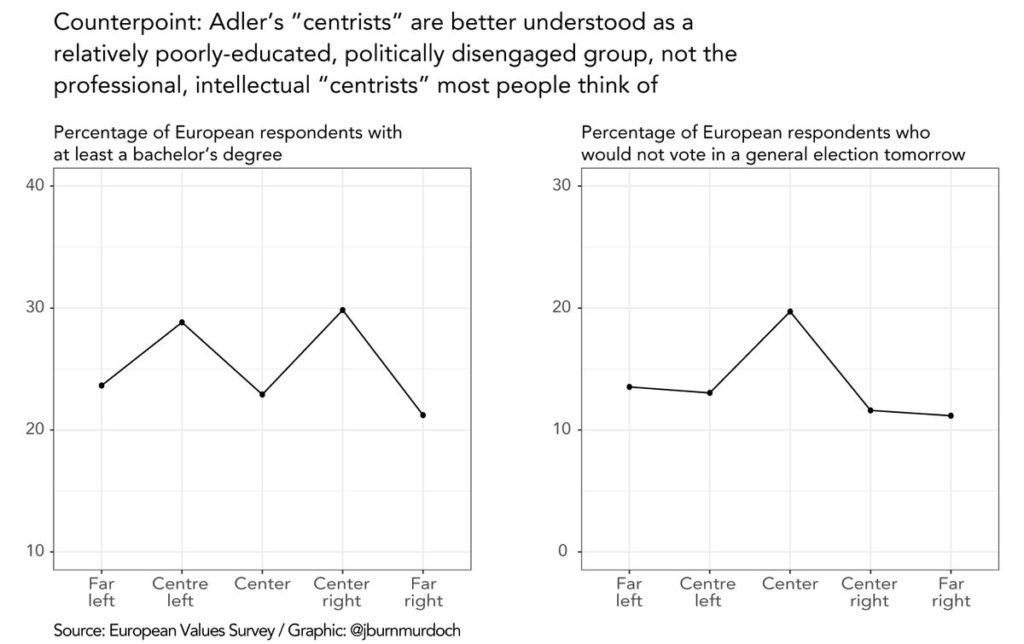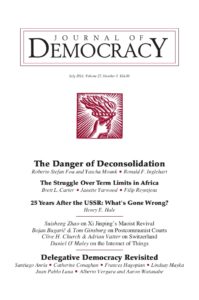
Across Europe and North America, support for democracy is in decline. To explain this trend, conventional wisdom points to the political extremes. Both the far left and the far right are, according to this view, willing to ride roughshod over democratic institutions to achieve radical change. Moderates, by contrast, are assumed to defend liberal democracy, its principles and institutions, political researcher David Adler writes for the New York Times.
The numbers indicate that this isn’t the case, he contends, drawing on from the most recent World Values Survey and European Values Survey, two of the most comprehensive studies of public opinion carried out in over 100 countries:
 As Western democracies descend into dysfunction, no group is immune to the allure of authoritarianism — least of all centrists, who seem to prefer strong and efficient government over messy democratic politics. Strongmen in the developing world have historically found support in the center: From Brazil and Argentina to Singapore and Indonesia, middle-class moderates have encouraged authoritarian transitions to bring stability and deliver growth. Could the same thing happen in mature democracies like Britain, France and the United States?
As Western democracies descend into dysfunction, no group is immune to the allure of authoritarianism — least of all centrists, who seem to prefer strong and efficient government over messy democratic politics. Strongmen in the developing world have historically found support in the center: From Brazil and Argentina to Singapore and Indonesia, middle-class moderates have encouraged authoritarian transitions to bring stability and deliver growth. Could the same thing happen in mature democracies like Britain, France and the United States?
All three data tests – support for democracy, democratic institutions, and authoritarianism – suggest highest hostility at the center, notes Adler. The analysis “dives back into the democratic deconsolidation debate launched by Yascha Mounk and Roberto Foa” [in the National Endowment for Democracy’s Journal of Democracy], he adds.
Adler’s analysis checks out, says FT analyst John Burn-Murdoch (see graphic above). But his moderates are “better understood as relatively poorly-educated, politically disengaged group, not the professional, intellectual ‘centrists’ most people think of.”







